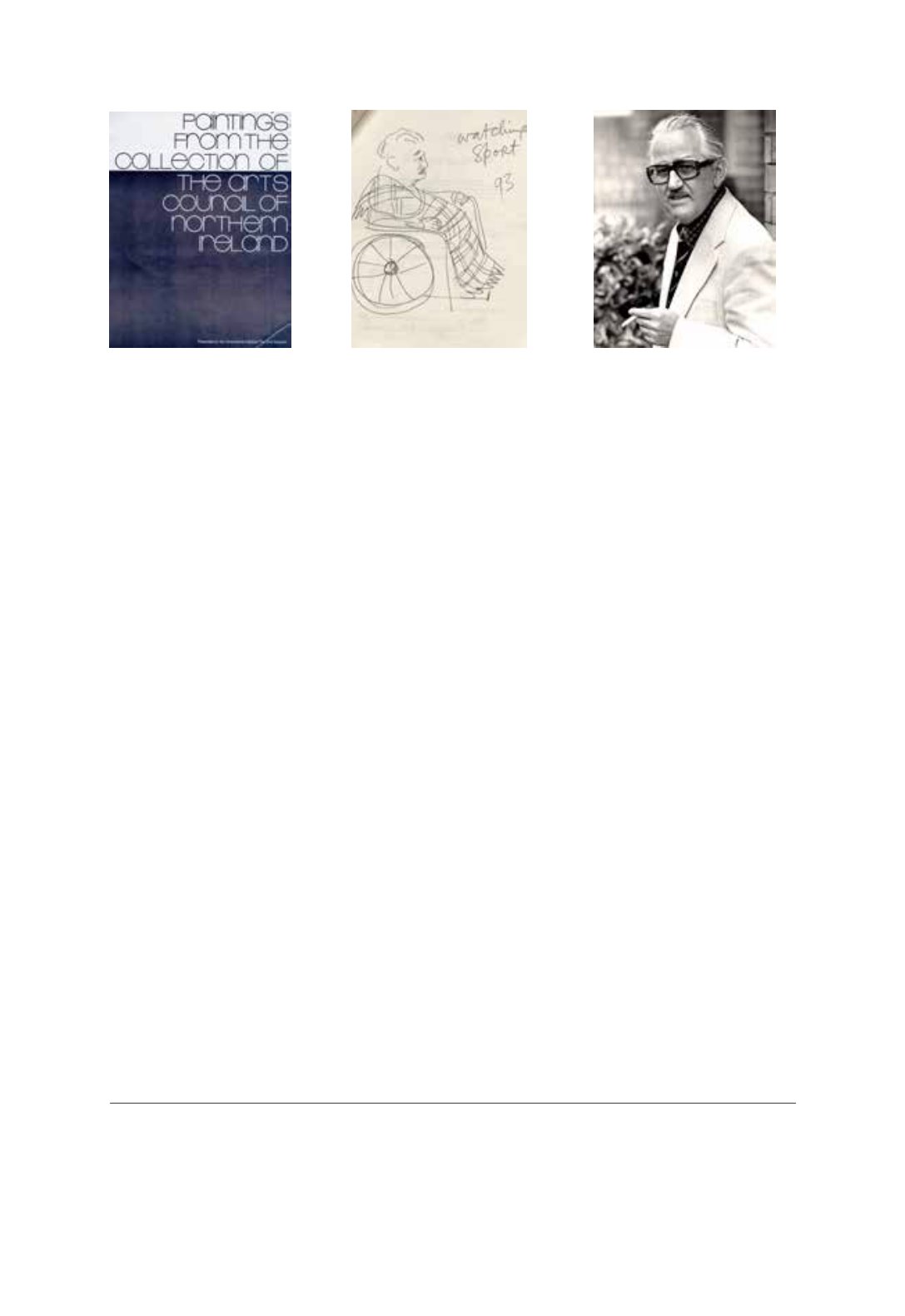

142
With the continuation of violence in the North, Campbell became fascinated with the
phenomenon of terrorists wearing balaclavas. The artist referred to his final series of paintings
as the ‘Non-Head Series’ and explained that each represents a contemporary head: a ‘head
with the stocking mask, the sugar bag with holes torn out, the head behind the visor, the
kind of non-head, the heads of automatons you wind up and point’.
203
Heads are depicted
wearing hats, stockings and goggles (cat. no.144). The paintings explore how violence can
dehumanize those that perpetrate terrorist acts. Campbell never signed, inscribed and seems
not to have exhibited these paintings.
In his late fifties and successful, Campbell longed for a quieter life. Confiding in Albert
Meagle, he told his friend he ‘found the noise and pace of city life having a negative impact
on him’.
204
Campbell would have also noticed the changes from increased tourism under a
new government. On one of his last sketching trips with Meagle, he stated, ‘come on Albert,
let’s sketch Malaga disappearing.’
205
He purchased land close to Glendalough in Laragh, Co.
Wicklow, from his friend, Willie Lloyd, who managed the Laragh Inn. He set about building
a small house for himself and Madge in the quiet village.
In 1977, Campbell held his final show with Tom Caldwell.
206
He continued to be represented
by the Kenny Gallery, Galway, and held a solo exhibition at Gallery 22, Dublin in 1978.
203
Ciaran Carty, ‘He Loves Talk but Doesn’t Trust Words’,
Sunday Independent,
5 March 1978.
204
Correspondence with Albert Meagle, 24 January 2014.
205
Interview with Albert Meagle, Malaga, 14 January 2014
206
The joint show was with Arthur Armstrong. It is not known why Campbell ceased exhibiting with Caldwell.
Chris Caldwell stated their ‘relationship was never easy.’
fig.235: Arts Council of North-
ern Ireland group catalogue,
1974
fig.237: George Campbell, 1970’s.
fig.236: George Campbell, cartoon self
portrait ‘Watching Sport, 93’ Photo;
PRONI, D/4122/H/29



















